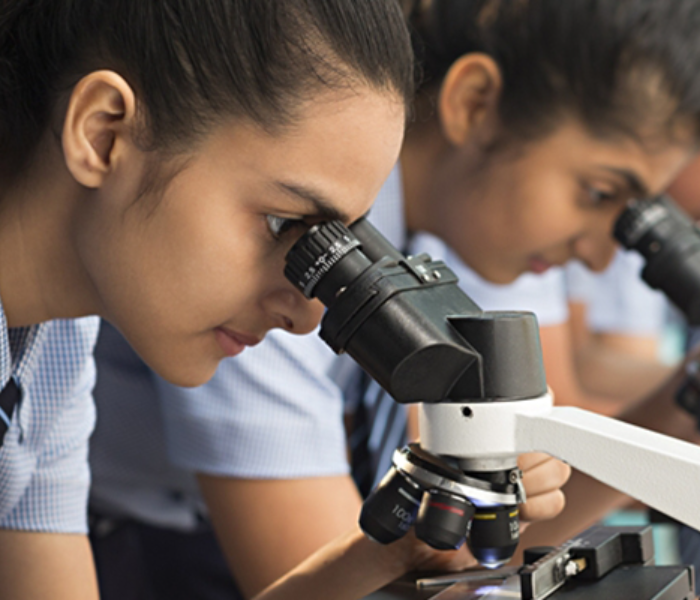Warning: Undefined array key "vp_page_image_desc" in /home/royalifems/public_html/edud/pages.php on line 37
Warning: Undefined array key "vp_section1_image_desc" in /home/royalifems/public_html/edud/pages.php on line 43
Warning: Undefined array key "vp_section2_image_desc" in /home/royalifems/public_html/edud/pages.php on line 49
Lab Facilities
- Home
- >
- Lab Facilities
Laboratory facilities in schools play a crucial role in enhancing the educational experience, especially in subjects like science, technology, and engineering. A well-equipped lab fosters hands-on learning, encouraging students to explore, experiment, and apply theoretical knowledge in practical scenarios. Here’s an overview of what constitutes effective lab facilities in a school setting:
1. Introduction to School Lab Facilities
- Purpose of Labs: School laboratories are designed to give students practical experience in subjects like biology, chemistry, physics, and computer science. These facilities help students understand scientific concepts, develop critical thinking skills, and cultivate a spirit of inquiry.
- Importance of Practical Learning: Labs provide an environment where students can conduct experiments, observe phenomena, and draw conclusions based on real-world evidence, bridging the gap between theory and practice.
2. Types of School Labs
- Science Labs: These include biology, chemistry, and physics labs, each equipped with specialized tools and materials. For example:
- Biology Labs: Typically contain microscopes, slides, specimens, and models of human anatomy.
- Chemistry Labs: Feature chemical reagents, glassware like beakers and test tubes, Bunsen burners, and safety equipment like goggles and gloves.
- Physics Labs: Provide apparatus for experiments in mechanics, optics, electricity, and magnetism, including tools like voltmeters, pendulums, and lenses.
- Computer Labs: Equipped with computers, software, and internet access, these labs allow students to learn coding, data analysis, digital design, and other computer science-related skills.
- Language Labs: These are designed to help students improve their language skills, especially in foreign languages. They typically include audio-visual equipment, interactive software, and recording devices.
- Math Labs: Math labs provide tools and manipulatives that help students visualize and understand mathematical concepts. These labs might include geometric shapes, measuring instruments, and graphing tools.
3. Key Features of Effective Lab Facilities
- Safety Measures: Safety is paramount in any lab setting. Labs should be equipped with safety gear such as fire extinguishers, first aid kits, eye wash stations, and proper ventilation systems. Students should be trained in safety protocols before beginning any experiment.
- Quality Equipment: High-quality, well-maintained equipment is essential for accurate experimentation and learning. Schools should regularly update and maintain lab equipment to ensure it is functional and safe to use.
- Adequate Space and Layout: Labs should be spacious enough to allow students to move around freely and conduct experiments without crowding. The layout should be organized, with clearly labeled sections for different materials and equipment.
- Resource Availability: Labs should be stocked with all necessary materials, including consumables like chemicals and reagents, as well as durable tools and instruments. Adequate resources ensure that students can complete experiments without interruption.
4. Benefits of Lab Facilities
- Enhanced Learning Experience: Lab work helps reinforce theoretical knowledge, making learning more comprehensive and engaging. Students who participate in lab activities tend to grasp concepts better and retain information longer.
- Skill Development: Lab work fosters essential skills such as problem-solving, analytical thinking, and teamwork. Students learn to approach problems methodically, hypothesize, and test their ideas through experimentation.
- Encouragement of Curiosity: Labs create an environment where students feel encouraged to ask questions, explore new ideas, and develop a deeper understanding of the world around them. This curiosity can lead to innovation and a lifelong interest in science and technology.
- Preparation for Future Careers: For students interested in pursuing careers in science, engineering, medicine, or technology, lab experience is invaluable. It provides them with the foundational skills and knowledge they will need in higher education and their future professions.



